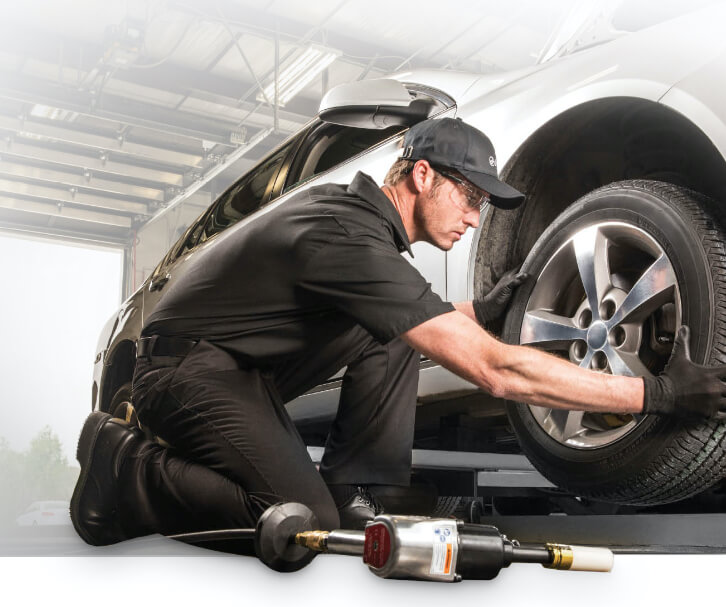Experience Precision with GMC Tire Service at Morris Tires
Experience Precision with GMC Tire Service at Morris Tires
Blog Article
Tire Service: The Effect of Weather
When it comes to making certain optimal performance and safety and security on the road, comprehending the influence of climate conditions on tire solution is critical. GMC Tire Service. In this discussion, we will check out the elaborate relationship between climate problems and tire solution, losing light on the relevance of weather-specific tire maintenance techniques and factors to consider.
Warmth and Tire Performance
When revealed to high temperature levels, tires experience modifications in performance that can significantly influence vehicle safety and security and handling. The warmth produced from prolonged driving or hot weather conditions causes the tire rubber to soften, leading to lowered step life and boosted wear.

Cold Climate Impacts
Cold climate conditions can have a considerable effect on tire performance and safety and security. As temperatures drop, tire rubber can set, leading to decreased grip on icy or snow-covered roadways. In cold climate, tires may also lose air stress much more rapidly, which can affect managing and fuel performance. In addition, cool temperature levels can trigger tire sidewalls to tense, boosting the risk of damage from gaps or various other road risks.
To alleviate the impacts of chilly weather on tires, it is essential to on a regular basis examine tire pressure and inflate them to the maker's advised degrees. Using winter or all-season tires designed for chilly weather condition conditions can additionally boost traction and hold on icy or snowy roadways. Correct tire upkeep, consisting of normal inspections for wear and damages, comes to be even a lot more important during chillier months to make certain optimal efficiency and security.
Rainy Conditions Impact
During stormy conditions, tire performance and safety can be considerably affected by the wet road surfaces and decreased exposure. The step pattern of tires plays a crucial function in maintaining traction on damp roadways. Tires with worn-out footsteps are more prone to hydroplaning, where a layer of water accumulates between the tire and the road surface, leading to loss of grip. To fight this, vehicle drivers must regularly check their tires for adequate tread deepness and think about purchasing tires particularly created for wet problems.
Moreover, rainy climate can likewise decrease exposure, making it testing for motorists his comment is here to see the road ahead plainly (GMC Tire Service). In such conditions, it is necessary to readjust driving speeds as necessary and preserve a secure complying with distance to allow for sudden quits. Correctly filled with air tires can also assist in maintaining control on wet roadways by providing far better handling and grasp
Snow and Tire Safety
Snow-covered roads present distinct difficulties for vehicle drivers, stressing the significance of correct tire option and maintenance. When driving in snowy conditions, having the appropriate tires can make a considerable distinction in safety and security and efficiency. Winter tires are made with unique rubber substances and walk patterns to give much better traction on snow and ice compared to all-season tires. The deeper footsteps and sipes of winter tires aid grasp the roadway much better, reducing the danger of slipping and sliding.

It is essential to comply with manufacturer directions when utilizing and mounting tire chains to stop damage to the tires and vehicle. By choosing the right tires, maintaining proper rising cost of living, and considering added grip help like tire chains, drivers can enhance their safety when navigating snow-covered roadways.
Weather-Related Tire Maintenance
Weather-related tire upkeep includes a range of techniques aimed at guaranteeing optimal tire feature and durability in various climate situations. One crucial aspect of weather-related tire maintenance is tire stress guideline. Inspecting tire walk on a regular basis and changing tires when step wear gets to a particular deepness is vital for keeping traction and stability in negative weather.
Verdict
In verdict, weather condition conditions have a considerable impact on tire efficiency and safety and security. From warm influencing tire pressure and wear to cold climate decreasing traction, it is crucial to consider the weather when preserving and using look at this now tires.
In this discussion, we will check out the elaborate relationship between weather condition problems and tire solution, shedding light on the relevance of weather-specific tire upkeep techniques and factors to consider.

Report this page